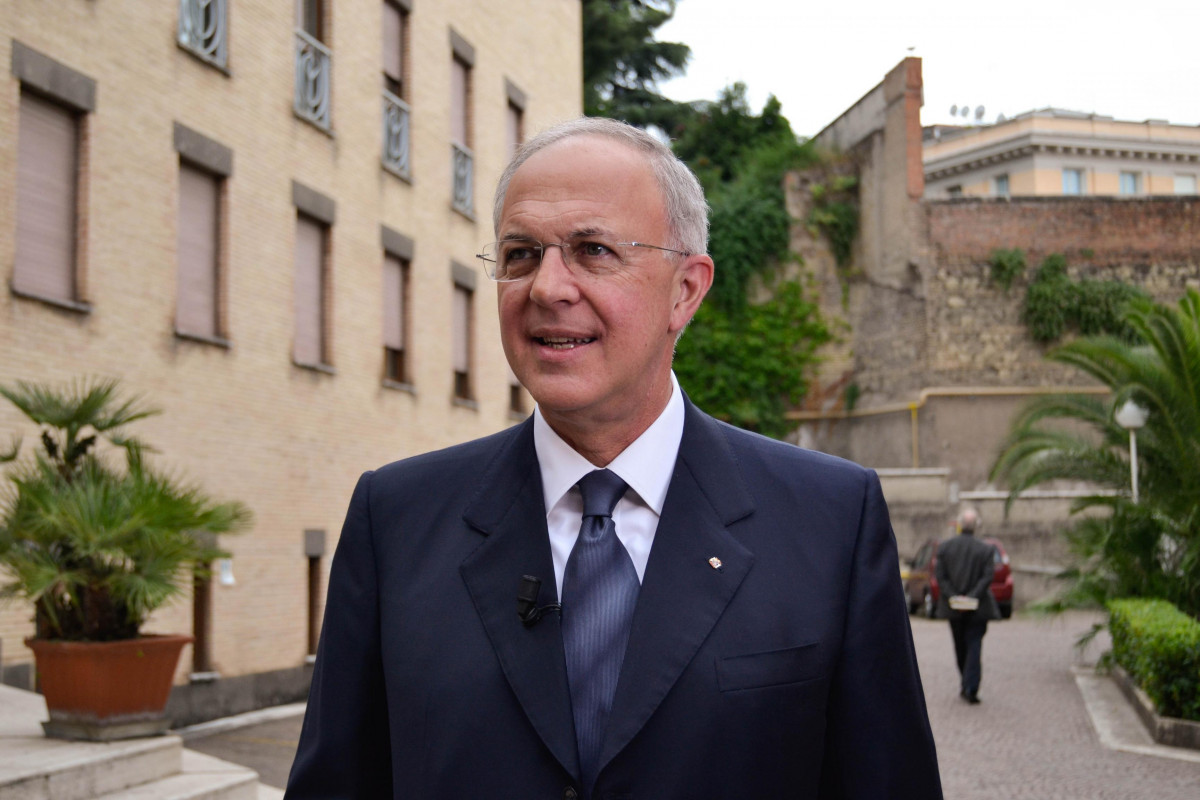– Christians can’t be second-class citizens if they are to remain in the Middle East, and the next United States administration will need to stand up for their rights, the head of the Knights of Columbus has said.
Speaking at the National Advocacy Convention 2016 for persecuted Middle Eastern Christians, Supreme Knight Carl Anderson of the Knights of Columbus insisted that for Christians in the Middle East, “the system of religious apartheid in the region must end.”
“Our tax dollars to the region must not be used to rebuild a discriminatory system that continues to impose second-class citizenship upon religious minorities,” he added, insisting that U.S. aid “should be contingent on the application of full rights of citizenship to every citizen of Iraq and other countries in the region.”
Anderson called for presidential candidates Hillary Clinton and Donald Trump to commit themselves to upholding those rights.
The 2016 National Advocacy Convention was held Sept. 7-9 in Washington, D.C. The group In Defense of Christians sponsored the event along with The Philos Project, the Institute for Global Engagement, and the National Armenian Conference of America.
On Thursday, religious leaders and advocates met with members of Congress to discuss the future of Christians in the Middle East.
That evening, the Solidarity Award was presented to three figures for their work in protecting persecuted Christians; Reps. Anna Eshoo (D-Calif.) and Jeff Fortenberry (R-Neb.) were honored for co-sponsoring a House resolution to state that genocide was taking place against Christians in Iraq and Syria.
Anderson was also recognized for his work. The Knights have raised over $11 million for Christians in the Middle East and have provided humanitarian aid for refugees driven from their homes by the Islamic State and who are not receiving aid sent through the Iraqi government. The Knights also helped push the U.S. to declare that Christians were victims of genocide in Islamic State-occupied territory.
Anderson, accepting the award, insisted that the Christians “are the ones who deserve an award” for having “lost everything except their faith.”
“These Christians persevere through an everyday heroism; and despite the tragic costs of that heroism, they continue to hope,” he added. “And their hope includes a faith in us.”
Thus, for the U.S. to honor their hope, they must support a solution for Christians in Iraq and Syria that will work for Christians in the long-term, he said.
One chief theme of the convention was how, after the U.S. declared that genocide was taking place against Christians, Yazidis, and Shia Muslims in areas controlled by the Islamic State, victims of genocide can be resettled in their own homes and protected in the future.
There must be two prongs to future U.S. policy in the region, Anderson maintained – ensuring that aid reaches genocide victims through successful channels, and that the aid is dependent upon Christians enjoying their rights as citizens.
Currently, the survivors are still facing genocide, albeit one of “attrition,” he said.
“Many of those who have lost everything now live as refugees who cannot find employment or housing or adequate medical care or clothing, or education for their children,” he said.
“But a genocide that some began by the sword cannot be allowed to succeed through indifference,” he continued. “The U.S. must make sure that aid reaches Christians displaced from their homes, many of who reportedly get no financial support from our government or from the United Nations.”
“The current aid channels have failed. We can no longer rely exclusively or even primarily upon government delivery systems in the region,” he said. Thus “new delivery channels and new partnerships with religious organizations” will have to be explored, he said, and genocide victims must be prioritized for receiving aid.
After the 2016 election in the U.S., the next administration will have to show a “new realism in our approach to issues of human rights in the region,” Anderson insisted, promoting rights based on the Universal Declaration of Human Rights rather than Sharia.
“When Islamic governments speak of human rights, they may be thinking of those rights as defined – or as confined – in the Sharia-based Cairo Declaration,” he said. “Realism demands that we not mislead ourselves or allow others to mislead us in this regard.”
Source: Catholic News Agency






